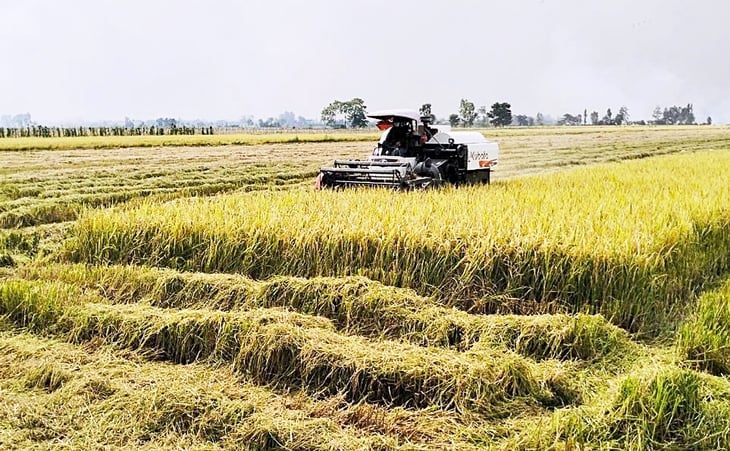
Farmers and businesses both want the government to purchase rice for temporary storage to keep rice prices from falling further - Photo: BUU DAU
Immediately after the Philippines - Vietnam's largest rice import market - officially suspended imports of Vietnamese rice from September 1, rice prices in the Mekong Delta region began to decrease, causing concern for many farmers whose fields are entering the harvest season.
Rice prices fall, farmers suffer losses
Mr. Nguyen Van Ngoi (Co To commune, An Giang province), owner of 5 hectares of OM8 rice in the 2025 autumn-winter crop, said that while the price of agricultural materials increased this season, the price of rice decreased sharply compared to the same period.
According to Mr. Ngoi, in the next 2 months, when the Philippines temporarily stops importing Vietnamese rice, farmers hope that the authorities will find new markets to boost rice consumption or the State will have a program to buy rice for temporary storage to keep rice prices from falling sharply.
"The price of rice must be above 6,000 VND/kg for farmers to make a profit; if the price is only above 5,000 VND/kg, farmers will certainly suffer losses, whether they cultivate on their own land or rented land," said Mr. Ngoi.
Mr. Huynh Thien Liem - member of Truong Phat Cooperative ( Dong Thap ) - said that the autumn-winter crop has just finished harvesting, the price has dropped to only 5,500 VND/kg of OM18 rice.
"At this price, if the average yield is 5 - 5.5 tons/ha, farmers can only break even when cultivating their own land, while rice grown on rented land is sure to result in a loss," said Mr. Liem.
According to Mr. Nguyen Van Hung, director of Thang Loi Cooperative (Dong Thap) - a unit with more than 400 hectares preparing to harvest this week, the price has decreased sharply compared to the same period, fluctuating at only 5,400 - 5,800 VND/kg depending on the variety.
"Businesses do not guarantee purchases, nor do they deposit in advance in the middle of the crop. They are only given prices close to the harvest date because they are worried about rice prices falling after the Philippines stopped importing," said Mr. Hung.
In Ca Mau province, many farming households in communes formerly belonging to Phuoc Long and Hong Dan districts of Bac Lieu province (old) said that rice prices fluctuate every day, but mainly tend to decrease.
According to farmers, the price of some rice varieties has dropped very low, only around 5,200 VND/kg, making rice growers almost unprofitable.
Proposing businesses to buy rice for farmers soon
Talking to us, Mr. Nguyen Thanh Huan, Deputy Director of the Department of Industry and Trade of An Giang province, said that the unit has issued a document requesting rice exporting enterprises to increase rice purchases from farmers, to avoid farmers being forced to lower prices.
"We only recommend that businesses sign contracts and purchase rice for people soon. We have not yet released money to temporarily store rice," said Mr. Huan.
Mr. Tran Thanh Hiep, Deputy Director of the Department of Agriculture and Environment of An Giang province, said that because they had known in advance that the Philippines had stopped importing rice from Vietnam, rice exporting enterprises had proactively diversified their markets.
So even though the price of rice has decreased compared to the same period last year, farmers still make a profit, albeit not much. "Farmers' remaining rice output is not much, so so far there have been no cases of dumping rice," said Mr. Hiep.
Meanwhile, Mr. Le Van Su, Vice Chairman of the People's Committee of Ca Mau province, said that he has just directed relevant agencies to urgently inform and disseminate the situation of the temporary suspension of rice imports from the Philippines so that cooperatives, production households and rice traders can grasp and proactively plan production and business; at the same time, guide cooperatives and households to harvest, preserve and consume rice appropriately.
The locality also supports households in connecting with traders, prioritizing rice sales for domestic contracts, export contracts to other markets or temporary storage on the spot, not dumping rice at low prices.
In addition, according to Mr. Su, the Department of Industry and Trade of Ca Mau province also needs to have solutions to support rice export traders in finding new markets and promoting trade through electronic trading floors and fairs.
Rice exports earned 3.17 billion USD in 8 months
According to the Ministry of Agriculture and Rural Development, in August 2025, Vietnam exported about 770,000 tons of rice, with a turnover of about 344 million USD, bringing the total volume and value of rice exports in the first 8 months of the year to 6.3 million tons, up 2.2% over the same period, with a turnover of 3.1 billion USD, down 17.5%. The Philippines is Vietnam's largest rice consumer market with a market share of 42.4%.
According to the ministry, in August 2025, export rice prices decreased across the board. Of which, Indian rice prices hit rock bottom since August 2022, while Thai rice prices also decreased by 16-20 USD/ton depending on the type due to sluggish demand.
In particular, the price of Vietnamese rice increased due to buyers in the Philippines increasing their stockpiling before the import suspension period, before the export price of Vietnamese rice turned to decrease again with an average decrease in August for 5% broken rice of 12 USD/ton.
Should organize temporary purchase to help farmers
Mr. Nguyen Chi Thanh - director of the rice industry of An Giang Import-Export Joint Stock Company (Angimex) - said that before the Philippines officially stopped importing Vietnamese rice, domestic rice prices had dropped sharply.
"And after this suspension order takes effect, it will be difficult for businesses to maintain rice purchasing activities, not to mention maintaining rice prices, because there is no output," Mr. Thanh said, adding that rice prices have decreased by more than VND2,000/kg compared to the same period last year, with many areas having rice prices below production costs.
In addition to the affected Philippine market, according to Mr. Thanh, importers in other countries are also waiting to see if the price of Vietnamese rice will continue to decrease.
"To stabilize rice prices and support farmers, in my opinion, the State should have a solution to organize temporary purchases and storage. Without government support, I am worried that rice prices will fall further.
Meanwhile, businesses are also under pressure to find ways to sell rice to avoid having too much inventory and reduce financial pressure," Mr. Thanh said.
Source: https://tuoitre.vn/philippines-tam-dung-nhap-gao-viet-mua-tam-tru-de-giu-gia-lua-20250904080829904.htm


![[Photo] General Secretary To Lam receives US Ambassador to Vietnam Marc Knapper](https://vphoto.vietnam.vn/thumb/1200x675/vietnam/resource/IMAGE/2025/9/29/c8fd0761aa184da7814aee57d87c49b3)

![[Photo] General Secretary To Lam chairs the meeting of the Central Steering Committee on preventing and combating corruption, waste and negativity](https://vphoto.vietnam.vn/thumb/1200x675/vietnam/resource/IMAGE/2025/9/29/fb2a8712315d4213a16322588c57b975)
![[Photo] National Assembly Chairman Tran Thanh Man chairs the 8th Conference of full-time National Assembly deputies](https://vphoto.vietnam.vn/thumb/1200x675/vietnam/resource/IMAGE/2025/9/29/2c21459bc38d44ffaacd679ab9a0477c)
![[Photo] Many streets in Hanoi were flooded due to the effects of storm Bualoi](https://vphoto.vietnam.vn/thumb/1200x675/vietnam/resource/IMAGE/2025/9/29/18b658aa0fa2495c927ade4bbe0096df)
![[Photo] General Secretary To Lam attends the ceremony to celebrate the 80th anniversary of the post and telecommunications sector and the 66th anniversary of the science and technology sector.](https://vphoto.vietnam.vn/thumb/1200x675/vietnam/resource/IMAGE/2025/9/29/8e86b39b8fe44121a2b14a031f4cef46)




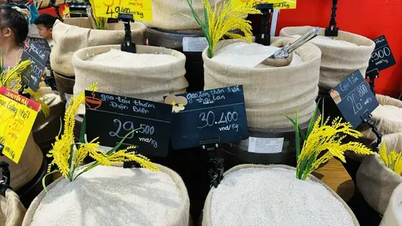

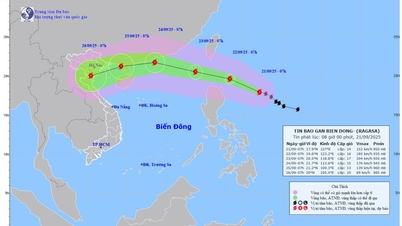










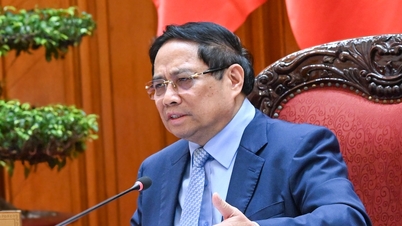























































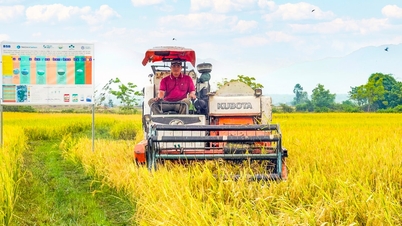

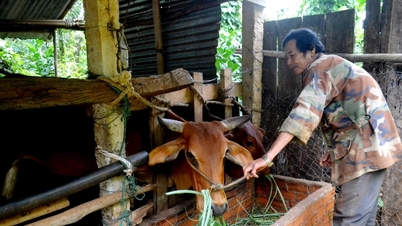
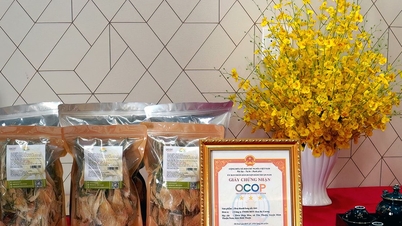


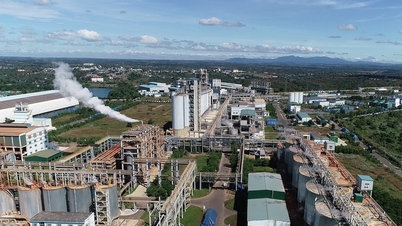
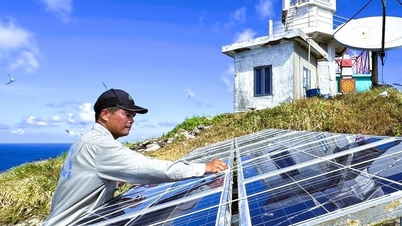













Comment (0)